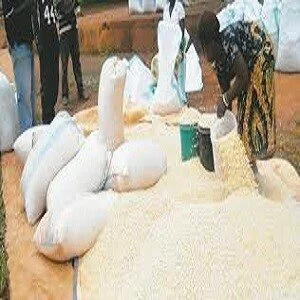2. Aflatoxins Affect African Food Exports, Experts Say
Aflatoxin, a poisonous and cancer-causing chemicals produced by certain molds which grow in grains, is a barrier to food exports from Africa and threat to human health, according to a senior East African Community (EAC) official.
This is mainly due to stringent regulations on Aflatoxin regulation, which limits how much produce enters the global market. “The entire African continent is susceptible to Aflatoxin contamination and that its high incidence continues to pose threat to human and animal health”, the EAC deputy secretary general in charge of Economic and Social Sectors, Ms Jesca Eriyo, said in a speech availed to The Citizen. She gave the warning in her keynote address to the Second Partnership for Aflatoxin Control in Africa (Paca) Platform meeting currently underway in Entebbe, Uganda. She quoted latest report by experts, who estimate that losses from Aflatoxin in Africa have escalated to the tune of $450 million each year due to stringent standards by the European Union (EU) alone. Ms Eriyo further warned that the poisonous chemical was one of the challenges that the African continent need to address in order to achieve global developmental aspirations such as the African Union (AU) Agenda 2063. The toxic material is regularly found in improperly stored staple commodities such as cassava, chili peppers, corn, cotton seed, millet, peanuts, rice, sorghum, sunflower seeds, tree nuts, wheat, and a variety of spices. Other development goals for the continent that may be affected by the toxic material include Sustainable Development Goals (SDGs), and the continental goals and targets contained in the 2014 African Union Heads of State Malabo Declaration on Accelerated Agricultural Growth and Transformation for Shared Prosperity and Improved Livelihoods. “EAC is also committed to the implementation of the Malabo Declaration. The overarching commitments in the Malabo Declaration include ‘Commitment to Ending Hunger in Africa by 2025’ and the Commitment to Boosting Intra-African Trade in Agricultural commodities and services. These commitments are pertinent to and of great relevance to the EAC integration process,” she said. Ms Eriyo, nevertheless, informed the conference participants that the EAC Aflatoxin Prevention and Control Initiative was launched in March 2014, with the overall focus of mitigating the adverse impacts of Aflatoxin along the food and feed value chains in the region.








Your style is so unique compared to many other people. Thank you for publishing when you have the opportunity,Guess I will just make this bookmarked.2